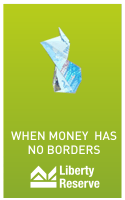If you are suffering from acne, you have no longer need to be troubled. Try the steps below to claim back a clearer skin, your confidence and self-esteem that acne has been robbing you. But remember that success needs time to achieve, so do not give up and you will see a smoother skin soon.
Step No 1: Home Remedies
i) You can try cooking oatmeal, applying it on the face for about 15 minutes followed by washing.
ii) Or, you can prepare a warm bath and blanch with rosemary along with nettle to eliminate or reduce your acne.
iii) Or, you can apply equal quantities of rose water and lemon juice with the help of a cotton ball and leaving the application on for about 30 minutes, and then washing and repeating this routine for at least twenty days.
iv) Or, you can apply lavender oil on the affected area to help soothe irritated skin. Also, you could try using sea salt and tea tree oil to help the pimples dry.
v) You can try washing your face first with a gentle acne cleanser then wash your face with the combination of sea salt and distilled water. Afterwards, you may apply or gently rub the affected area with lemon juice then wash it with pure glycerin. After the routine, use benzoyl peroxide to help your pimples dry.
The above are natural remedies you can try at home. Apply the steps everyday until you see improvement on your skin. The key in using home remedies for acne is to try and find out what is best and what really works for you.
If you have to use allopathic acne remedies, then you may want to use low level of antibiotics, such as tetracycline. The trouble with allopathic acne remedies is that they are likely to produce side effects. There may also be long-term consequences since it is typical for the body to become resistant to antibiotics after extended use. As bacteria are not the main cause of acne, such acne remedies should not be used in the long term.
Step No 2: Cleansing
i) It is very important that you should keep your skin clean and dry most of the time.
ii) You need to gently wash your face and other affected areas of your skin with clean water and mild soap once or twice in a day.
iii) To gently cleanse the affected are of your skin, just splash it gently with clean water.
iv) Do not use any alcohol based products to clean you face because this can cause irritations on the affected area.
v) When washing your face, start from the chin, working upwards and then rinsing thoroughly. Do not press or rub the affected area, but pat dry that area gently with clean soft towels.
vi) Take care not to touch the affected area with your hands or any other objects. Do not squeeze pimples or acne because this could lead them to infections and possible scarring. Always remember your goal should be to ease your discomforts and not to do more harm on your skin.
Touching the affected area of your skin will only make matters worst so just leave your acne alone. Moreover, you have to stop looking at your face in the mirror. If you keep checking the acne on your face every minute or so, you will make yourself more anxious and self-conscious
Step No 3: Avoid Aggravating Your Skin
i) To prevent more acne outbreaks on your skin, avoid using milky cleansers and cosmetic products that contain oils, because oil can further clog up your pores and will cause more irritations.
ii) Try to do without make-up until such time when the inflammations on your face have all cleared up. If you must put make up on, consult a dermatologist first on which types of make-up you should use. Do not just put on anything on your face if you do not want more flare-ups to occur.
iii) Try not to expose your irritated skin to direct sunlight for a long period of time. If you have to work outdoors, wear a wide brim hat that will shade your face, because the heat of the sun could cause more harm to your already irritated skin.
Step No 4: What To Apply
i) You may use non-prescription medicated soaps, lotions, creams of gels. Products that can used include benzoyl peroxide, alpha-hydroxy acid, salicylic acid and tea tree oil which can kill bacteria, unclog the pores and dry up blemishes.
ii) However, before you apply any of these products on your skin, make sure that you read the labels of these products carefully and follow the instructions for their applications strictly. Although these products are relatively safe on your skin, you may suffer from some unwanted side effects if you do not use them correctly.
Step No 5: When Nothing Else Works
However if after following the steps above and the flare-ups on your face persist or gets worse, you need to see a doctor and ask how to reduce and treat your particular acne. If you are affected with severe acne, it can leave your skin scarred and blemished. Therefore you have to make sure that you seek medical help as soon as possible if you notice that your acne is getting worst.
Step No 1: Home Remedies
i) You can try cooking oatmeal, applying it on the face for about 15 minutes followed by washing.
ii) Or, you can prepare a warm bath and blanch with rosemary along with nettle to eliminate or reduce your acne.
iii) Or, you can apply equal quantities of rose water and lemon juice with the help of a cotton ball and leaving the application on for about 30 minutes, and then washing and repeating this routine for at least twenty days.
iv) Or, you can apply lavender oil on the affected area to help soothe irritated skin. Also, you could try using sea salt and tea tree oil to help the pimples dry.
v) You can try washing your face first with a gentle acne cleanser then wash your face with the combination of sea salt and distilled water. Afterwards, you may apply or gently rub the affected area with lemon juice then wash it with pure glycerin. After the routine, use benzoyl peroxide to help your pimples dry.
The above are natural remedies you can try at home. Apply the steps everyday until you see improvement on your skin. The key in using home remedies for acne is to try and find out what is best and what really works for you.
If you have to use allopathic acne remedies, then you may want to use low level of antibiotics, such as tetracycline. The trouble with allopathic acne remedies is that they are likely to produce side effects. There may also be long-term consequences since it is typical for the body to become resistant to antibiotics after extended use. As bacteria are not the main cause of acne, such acne remedies should not be used in the long term.
Step No 2: Cleansing
i) It is very important that you should keep your skin clean and dry most of the time.
ii) You need to gently wash your face and other affected areas of your skin with clean water and mild soap once or twice in a day.
iii) To gently cleanse the affected are of your skin, just splash it gently with clean water.
iv) Do not use any alcohol based products to clean you face because this can cause irritations on the affected area.
v) When washing your face, start from the chin, working upwards and then rinsing thoroughly. Do not press or rub the affected area, but pat dry that area gently with clean soft towels.
vi) Take care not to touch the affected area with your hands or any other objects. Do not squeeze pimples or acne because this could lead them to infections and possible scarring. Always remember your goal should be to ease your discomforts and not to do more harm on your skin.
Touching the affected area of your skin will only make matters worst so just leave your acne alone. Moreover, you have to stop looking at your face in the mirror. If you keep checking the acne on your face every minute or so, you will make yourself more anxious and self-conscious
Step No 3: Avoid Aggravating Your Skin
i) To prevent more acne outbreaks on your skin, avoid using milky cleansers and cosmetic products that contain oils, because oil can further clog up your pores and will cause more irritations.
ii) Try to do without make-up until such time when the inflammations on your face have all cleared up. If you must put make up on, consult a dermatologist first on which types of make-up you should use. Do not just put on anything on your face if you do not want more flare-ups to occur.
iii) Try not to expose your irritated skin to direct sunlight for a long period of time. If you have to work outdoors, wear a wide brim hat that will shade your face, because the heat of the sun could cause more harm to your already irritated skin.
Step No 4: What To Apply
i) You may use non-prescription medicated soaps, lotions, creams of gels. Products that can used include benzoyl peroxide, alpha-hydroxy acid, salicylic acid and tea tree oil which can kill bacteria, unclog the pores and dry up blemishes.
ii) However, before you apply any of these products on your skin, make sure that you read the labels of these products carefully and follow the instructions for their applications strictly. Although these products are relatively safe on your skin, you may suffer from some unwanted side effects if you do not use them correctly.
Step No 5: When Nothing Else Works
However if after following the steps above and the flare-ups on your face persist or gets worse, you need to see a doctor and ask how to reduce and treat your particular acne. If you are affected with severe acne, it can leave your skin scarred and blemished. Therefore you have to make sure that you seek medical help as soon as possible if you notice that your acne is getting worst.





No comments:
Post a Comment